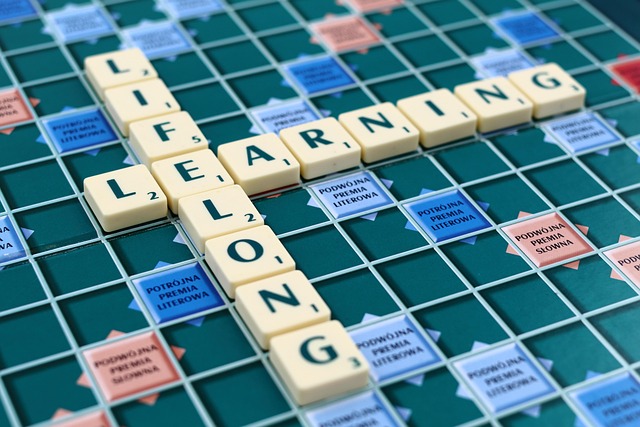How to Sharpen Word Recall with Daily Grid Challenges
Daily grid challenges offer a structured, repeatable way to exercise word recall and everyday vocabulary. Short sessions that combine clues, pattern recognition, and focused attention can make word retrieval smoother over time. This article outlines practical approaches to use puzzles and wordplay as part of regular literacy and braintraining routines.

Daily grid challenges can be an efficient, engaging way to sharpen word recall and reinforce the neural patterns that support fluent language use. Approaching puzzles with consistent, short sessions focuses attention on clue interpretation, letter patterns, and retrieval strategies. Over days and weeks, that practice helps consolidate connections between meanings and word forms, so that when you need a term in conversation or writing it comes to mind more readily. The rest of this article breaks down how specific elements—wordplay, clues, grids, strategy, and even mobile analytics—can be combined into a practical routine for learners, students, and anyone interested in improving everyday vocabulary and literacy through games and education-focused exercises.
How do puzzles improve vocabulary?
Puzzles expose solvers to a range of words in context. Encountering synonyms, antonyms, and thematic entries reinforces meaning through repeated association rather than isolated memorization. Completing a grid requires matching a clue’s sense to a candidate answer and testing it against intersecting letters, which strengthens recall links between definitions and orthography. Regular practice also increases familiarity with morphological patterns—prefixes, suffixes, and root forms—helpful for deducing unfamiliar words. For learners and educators, integrating short puzzle sessions into literacy activities can support vocabulary acquisition without relying solely on rote lists.
Can wordplay and clues boost recall?
Wordplay and well-crafted clues nudge solvers to think flexibly about language. Puns, homophones, and double meanings encourage multiple retrieval pathways for a single concept, which can make recall more robust in varied contexts. Clue-solving trains users to recognize key hint words and plausible answer structures, turning recall into a small problem-solving exercise rather than a single retrieval attempt. This strategy helps not only with remembering specific words but also with interpreting unfamiliar clues in other reading or listening situations.
What role do grids and wordgames play?
Grids and structured wordgames provide immediate feedback: crossing words validate or invalidate candidate answers. This cross-checking makes errors informative rather than merely frustrating. Grid layouts also encourage chunking—treating related entries as clusters—which can make longer or compound vocabulary items easier to remember. Wordgames that vary formats (crosswords, fill-ins, word ladders) keep practice fresh while reinforcing the same underlying skills: pattern recognition, orthographic memory, and semantic mapping.
How does strategy support braintraining?
Deliberate strategy turns casual puzzle-solving into targeted braintraining. Setting small goals (complete three themed grids daily, focus on clues with a particular part of speech, or time short practice sessions) helps build habit and measurable progress. Using techniques like letter-pattern scanning, process-of-elimination for competing answers, and back-solving from known letters improves retrieval efficiency. These strategies emphasize active retrieval and spaced repetition—two evidence-aligned learning principles—applied through enjoyable tasks rather than abstract drills.
How do puzzles fit into education and literacy?
In classroom or adult-education settings, puzzles can be scaffolded for different skill levels: simpler grids for early readers and more challenging themed puzzles for advanced vocabulary work. Integrating puzzles into lesson plans supports contextual learning by connecting words to topics under study, enhancing retention. For literacy development, short daily or weekly puzzle assignments provide low-stakes practice in decoding, spelling, and semantic inference, complementing reading and writing exercises without replacing systematic instruction.
How to use mobile tools and analytics for practice?
Mobile puzzle apps and online platforms make it easy to maintain daily practice and to track progress. Look for apps that record completion times, error patterns, or frequently missed clue types; analytics of this kind highlight areas to focus on, such as verb forms or thematic vocabulary. Many platforms also let users save custom word lists and revisit entries, combining spaced repetition with game-based motivation. Use analytics not as the sole metric of ability but as a way to plan targeted sessions that address persistent gaps in recall.
Conclusion Daily grid challenges combine repeatable practice, strategic problem solving, and contextual exposure to support word recall and vocabulary growth. By varying formats, applying deliberate strategies, and using tools that track performance, learners can turn short, frequent puzzle sessions into a systematic component of literacy and braintraining routines. When integrated thoughtfully into education or personal practice, these activities provide a measurable, enjoyable path to more confident word retrieval.






